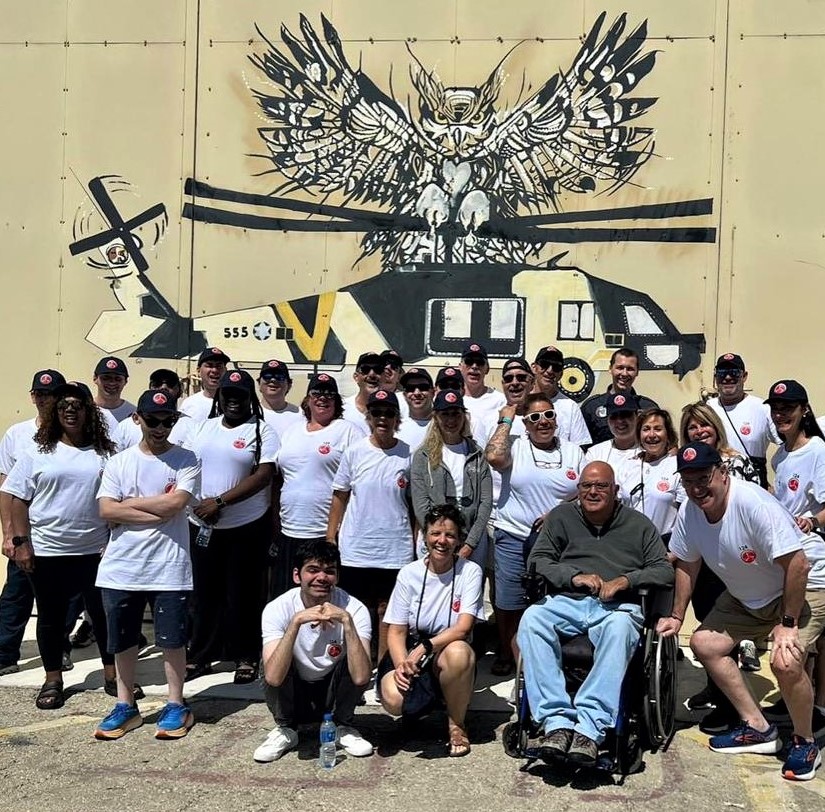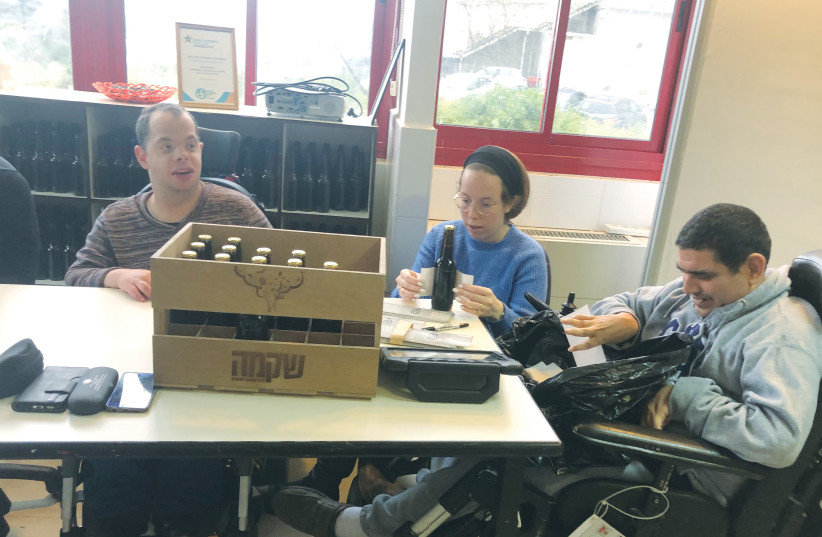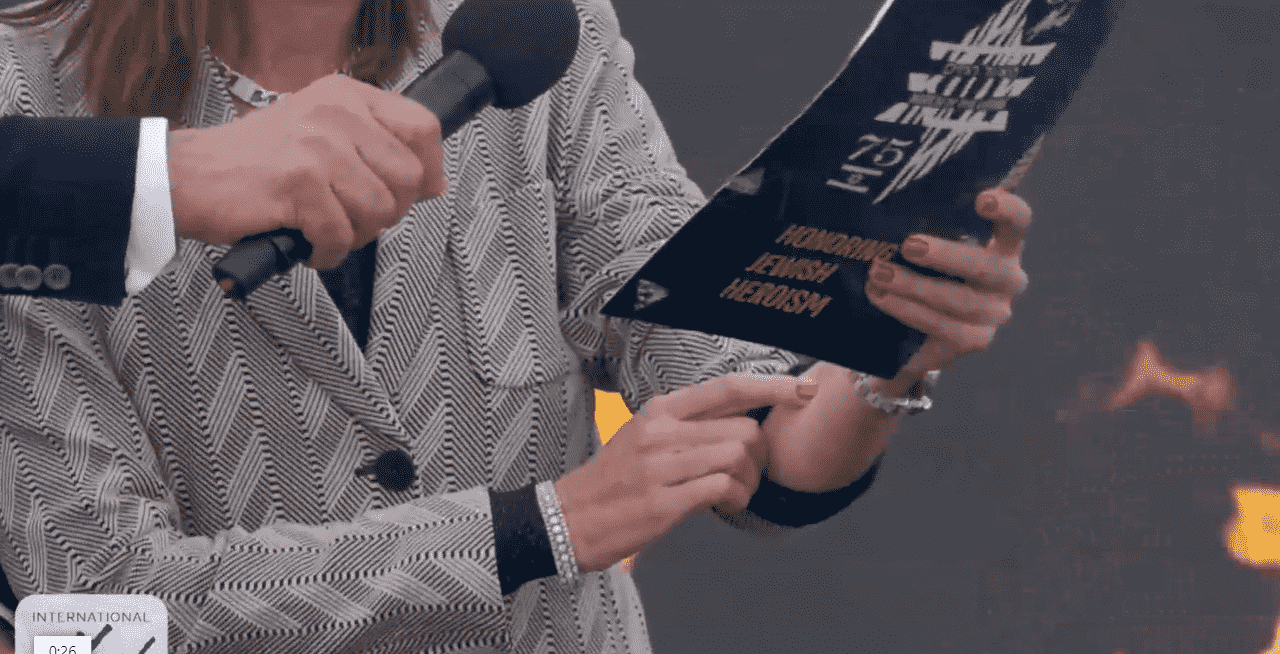Original Article Published On The JNS
“Disabilities should not hinder individuals and their families from … participating in cultural exchanges like any neurotypical individual would,” said Michael Storz of the Chapel Haven Schleifer Center in New Haven, Conn.
A group of 30 residents of Connecticut, including adults with disabilities, their parents and staff members who work with them, spent nine days in Israel learning about accessibility in the Jewish state.
The trip ran from April 26 to May 4, observed by JNS in its entirety. It was a joint program of the Chapel Haven Schleifer Center in New Haven, Conn., and the nonprofit Access Israel and Accessibility Accelerator—the U.S. partner of Access Israel, based in Kfar Saba, Israel.
“Disabilities should not hinder individuals and their families from traveling, navigating all terrains and participating in cultural exchanges like any neurotypical individual would,” Michael Storz, president of Chapel Haven, a more than 50-year-old nonprofit, told JNS.
The trip not only taught Chapel Haven’s staff and adult community members about how Israeli counterparts remove barriers to independence, but the group also “learned about multiple cultures” and “the beauty of Israel and its people,” according to Storz. And it focused on creating “ambassadors for accessible travel.”
Early on in the program, Jamie Lassner, executive director of Accessibility Accelerator, told the group: “Your experience and knowledge have made you an important advocate for inclusive and accessible travel.”
Harriet Schleifer, a Chapel Haven donor and board member (she does not live in Connecticut), first suggested the idea of a trip to Israel. She participated with her 36-year-old son, David Schleifer, who was visiting the Jewish state for the first time.
The itinerary included visits to the Church of the Annunciation in Nazareth, a boat ride on the Kinneret and a tour of Agamon Hula-JNF Nature and Ornithology Park in the Hula Valley in northern Israel. At the nature center, after touring the nature reserve’s many miles of paved pathways in golf carts, participants had an opportunity to ride on the back of a tandem bike driven by a professional bike rider, where they were encouraged to cover their eyes and experience the park like a blind person would. Others rode recumbent bikes.
One participant, Shania Jones, told JNS that closing her eyes was “pretty scary at first, but a good experience.”

Mother and son Peggy Baker and Matthew Baker. Credit: Courtesy of Accessibility Accelerator.
Accessibility at Masada, Dead Sea, Tower of David
In Tel Aviv, participants heard over dinner at the Herod Hotel from Shirly Pinto, the only deaf person to serve in the Knesset, Israel’s parliament in the capital of Jerusalem. The former Knesset member told the group about addressing that legislative body with an interpreter. She recounted that it was unusual for the Knesset to remain so silent and attentive, she said.
The group also visited Palmachim Airbase, near Rishon Letzion and Yavne on the Mediterranean coast, where participants saw mechanics working on Black Hawk helicopters. Driving his wheelchair, Yuval Wagner, president and founder of Access Israel, led the group to a monument to a Cobra helicopter that crashed on a 1987 training mission when a rotor broke off. Wagner was paralyzed in that crash, which killed his commander.
At the base and over dinner at his home in Hod Hasharon outside Tel Aviv, Wagner told the group that he was inspired to create Access Israel after being unable to access a bathroom at a guest house while vacationing in the north of Israel.

Participant Rachel McEachern at the Western Wall in Jerusalem. Credit: Courtesy of Accessibility Accelerator.
The itinerary also included a visit to Masada, which the group found to be accessible for those with wheelchairs or scooters, and a stop at the Dead Sea. The latter, where the group took wooden steps to reach a beach, was not accessible, although participants were told that other parts of the area were.
At the Tower of David Museum of Jerusalem, Reut Kozak, head of access and inclusion, explained that the museum has recently upgraded an elevator and its galleries to make them more accessible.
Other stops included the Jerusalem headquarters of the emergency services first-responder agency United Hatzalah; the Biblical Zoo, also in Jerusalem; and Ma’arag Mevo’ot HaChermon, a job-training program for people with disabilities, which includes a coffee shop and art workshop.

A group photo at the Palmachim Airbase in Israel; Yuval Wagner, president and founder of Access Israel, is in the front row, third from left, in the wheelchair. Credit: Courtesy of Accessibility Accelerator.





